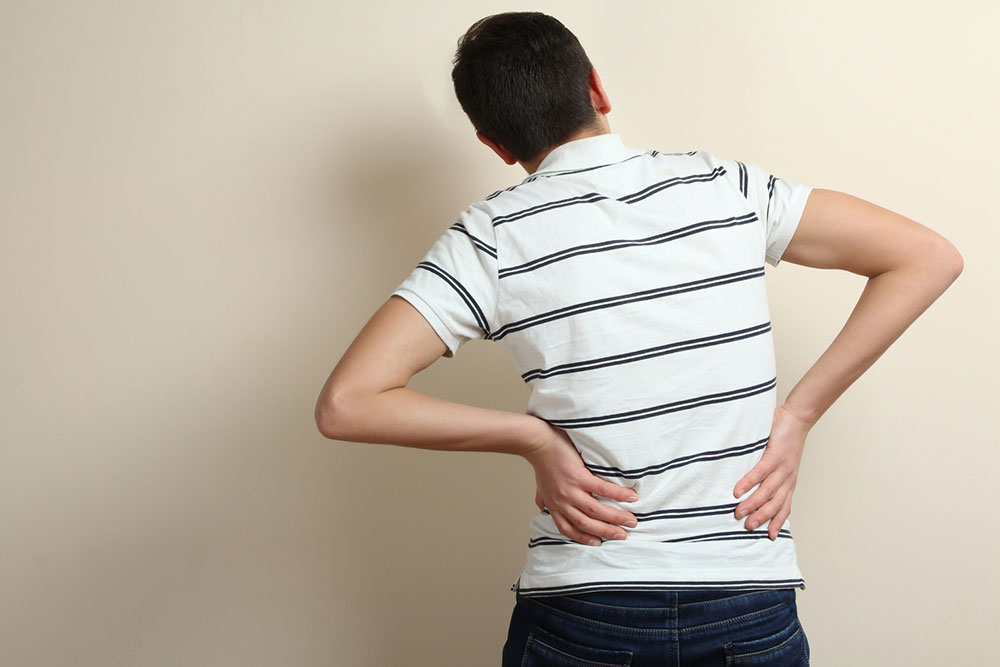Exercises and Medications To Ease Lower Back Pain
Lower back pain is a problem that almost everyone experiences at some point in their life. Characterized by severe pain, it may need treatment until it subsides on its own.
The severity of lower back pain may vary from case to case. Some people may experience a dull ache, while some other may get a sharp, shooting pain. Sometimes, the pain is so severe that you may find it difficult to stand straight or even stand-up. You may experience acute back pain due to injuries caused by sports or as a result of heavy lifting.
If you face symptoms like loss of control over the movement of your bowels, inability to control your bladder, a fever, or pain while coughing or urinating, along with pain in the lower back, you must visit a doctor.

Common causes of lower back pain
If one experiences lower back pain, it is advisable to visit a doctor, especially if the patient has lost weight unexpectedly, has a family history of cancer, or other such complications. Lower back pain may result from a muscle strain that leads to bulged discs which will cause pain from your hips down to your legs.
Lower back pain may also be associated with lifting objects every day, pulling things down and other such tasks which could a part of a patient’s job. At the same time, sitting at the same place for a long time, in a slouching posture, can also contribute to lower back pain.
Going overboard while working out can also lead to lower back pain. People also face a high risk of lower back pain-related problems if they are overweight. One may need to perform exercises for lower back pain regularly if they have a sedentary lifestyle.
Lower back pain can also be attributed to some chronic problems such as fibromyalgia and spinal stenosis. The cause of lower back may be chronic conditions like spondylitis which is characterized by chronic pain in the back and stiffness caused by inflammation of the spinal joints.
Diagnosis and medication
For the diagnosis of this problem, your doctor may ask you to go for imaging tests such as X-rays, MRI scans, or CT scans. Your doctor may also examine your symptoms and problems along with your medical history. Dealing with the symptoms of lower back pain may involve using over the counter medications.
These medications are especially helpful when the pain is mild. You may take medicines like naproxen and ibuprofen to get relief from the pain. Some pain-relieving creams may also be used to curb the pain associated with this problem. However, you should always consult a doctor before taking any medications.
Lower back exercises that you can follow
Lower back pain exercises are essential to cope with this condition. Resting will not help with the pain. Instead, exercises aimed at strengthening your back, leg, and stomach will be of use to you. However, you should not engage in any exercises without taking advice from your doctors to avoid any accidents or injuries. Patients will require different exercises, depending upon the severity of pain.
Exercises such as toe touches and sit-ups are not good for your back and should be avoided to prevent any injuries. Instead, partial crunches or hamstring stretches are some of the exercises that can help in dealing with the problem of lower back pain. These activities strengthen your stomach, legs, and back muscles.
Leg lifts are also risky, and you should avoid it at all costs. Instead, you can try wall sits. This exercise requires you to stand about 12 inches away from the wall. Next, you have to maneuver downwards into a sitting position with your back resting flat against the wall. Then, hold this position for about 10 seconds. You can repeat this about 10 to 12 times.
You should try press-up back extensions or knee-to-chest exercises. You can also consider pelvic tilts if you have lower back pain. Bridging is another helpful exercise that can strengthen your muscles and reduce lower back pain.
In the bridge, you need to lie down on your back, facing upwards with bent knees. Keep your heels close to the floor. Then, all you have to do is pull your body upwards and lift your hips off the ground. You should do this without arching the lower back. Hold the position for about 10 seconds, and repeat it at least 8 to 12 times.
Lifting weights is one of the recommended exercises for lower back pain. However, do it only if you are experiencing a moderate amount of pain. Avoid lifting weights to prevent any additional injuries associated with lower back pain.
Aerobic exercises are helpful if you are dealing with lower back pain. Activities such as swimming, biking, or walking can be helpful as well. A well-guided Pilates session is recommended as one of the best exercises for getting relief from lower back pain.

